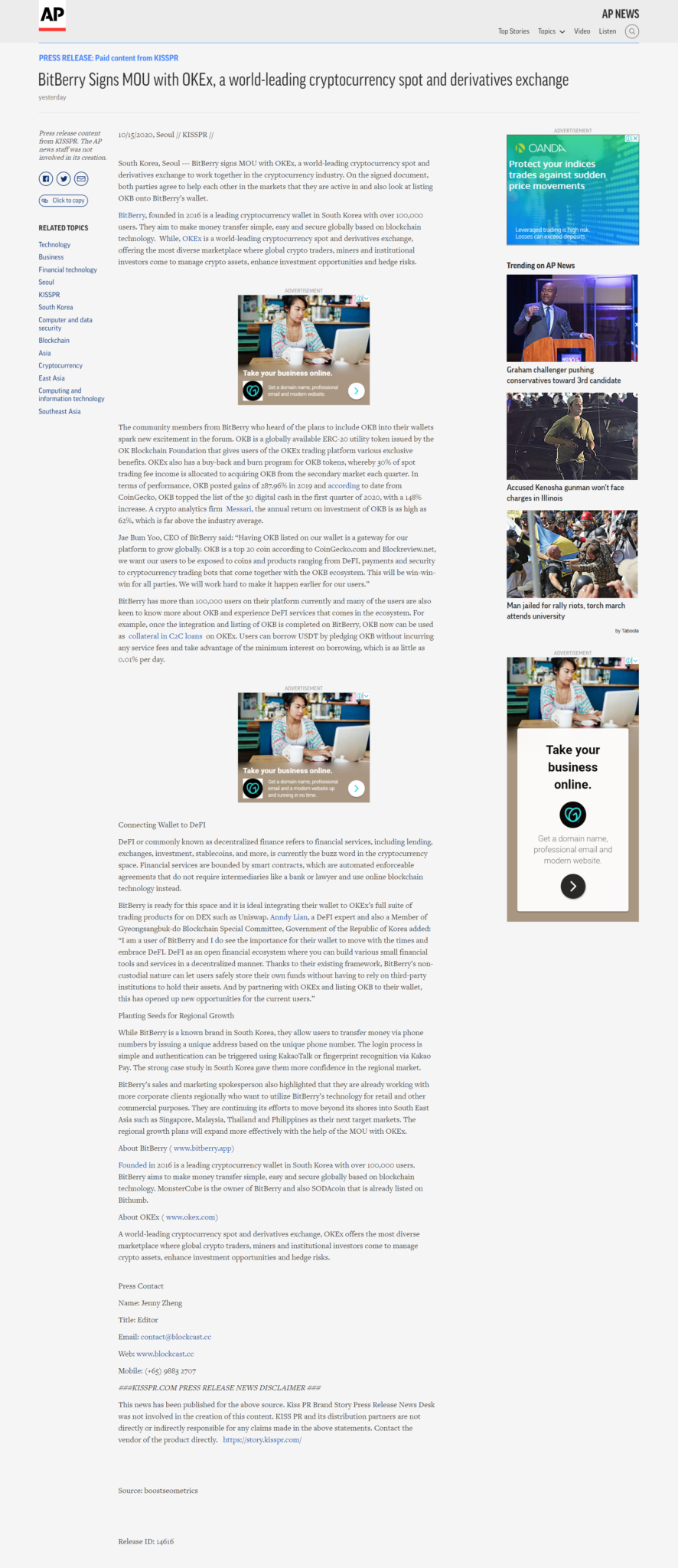Digitisation has progressed and grown from Web1, the first worldwide web built on open source technologies and open standards such as HTML/HTTP. These protocols served as the foundation for technological giants such as Amazon, Microsoft, and Apple. Then came the Web2 shift; the technology was primarily focused on user-generated content; the most significant innovation brought about by this progression are social networks such as Facebook/Meta, Twitter, and many more.
Notably, the majority of Web2 technologies were based on the same open and standard Web1 technology. The internet on which the web is built was the result of work from the 1960s to 1990s from research labs and universities largely in the public sector. As not-for-profit, they focused on establishing open standards for ease of information sharing. The only difference is that user-generated content and information on Web2 platforms are contained within siloed ecosystems. Today the internet Web2 giants such as Amazon and Google come from the foundations laid in the internet era.
We are once again at a crossroads in the evolution of the Web into a new decentralised iteration known as Web3. Through features such as value exchange and decentralization, Web3 aspires to shift the paradigm of previous iterations. Users will now be able to get value in exchange for the content value they contribute, and decentralised systems will be built to empower users. In another sense, however, Web3 is an attempt to return to the earliest visions of the open web, built on a common neutral network.
As the inventor of the World Wide Web, Tim Berners-Lee said: “The web was designed to be decentralised so that everybody could participate by having their own domain and having their own webserver and this hasn’t worked out. Instead, we’ve got the situation where individual personal data has been locked up in these silos. […] The proposal is, then, to bring back the idea of a decentralised web.”
With Web3, who we are online as individuals is becoming increasingly significant, and it will become even more so in the future. Most significantly, Web3 contributes to the development of a framework and infrastructure for the metaverse, an activity-based immersive ‘always on’ digital environment. Therefore, in this article, we will investigate the concept of the metaverse and the importance of interoperability to enable a sustainable digital world.
What is the metaverse?
When you think of an HTML interface, you are looking at a product of the Web1. At the dawn of the internet, the HTML interface was a basic and straightforward way for individuals to engage with the digital world. With the introduction of video calls and other features, the second version of the worldwide web, Web2, resulted in a more sophisticated and social media-oriented way to use the internet.
In comparison the Web3 is a complete paradigm shift, bringing an improved interface that will expand to spatial computing, AR wearables, virtual reality, and other connected devices, enabling unprecedented levels of creativity and engagement. Our ability to connect more in the digital world of the metaverse will result in the formation of entirely new marketplaces and the emergence of new protocols and ecosystems. As metaverse guru Matthew Ball explained: “The Metaverse will not develop as the internet did. Public institutions, military research labs, and independent academics led the latter’s development because they were effectively the only ones with the computational talent, resources, and ambitions to build a World Wide Web, and few in the industry understood its commercial potential. None of this is true when it comes to the Metaverse.”
The importance of ‘interoperability’ in the metaverse
One of the most popular and most powerful Web2 platforms, Facebook, recently announced a rebranding as Meta, a metaverse-focused company. Meta and other Web2 juggernauts such as Amazon, Facebook, and Apple are developing and acquiring the technology and toolsets needed to build their ‘walled garden’ version of the metaverse. These platforms all want to establish their own rules for what the metaverse should be like, but they refuse to give up their feeling of propriety ownership.
Gaming ecosystems such as Unity used to be the sole understandable concept of the metaverse, but as new standards are developed, there is bound to be more uncertainty about a metaverse built on open standards and easy interoperability. “For the Metaverse to thrive, we need developers to thrive. And this means making it as easy to take a virtual immersive educational environment or AR playground from one platform to another as it is to move a blog or newsletter,” argues Ball.
The rise of centralised Web2 platforms in the Web3 world may stifle the development of decentralised systems in the metaverse. The epitome of Web20 is siloed ecosystems, harvesting your data to turn a profit through hyper-targeted advertising; if each platform sets its metaverse standards, the risk is that Web3 will simply become a more hi-tech version of the current siloed ecosystems. As Epic Games CEO Tim Sweeney warned in 2016 when talk of the decentralised web was starting to become popular, the metaverse is going to be “far more pervasive and powerful than anything else. If one central company gains control of this, they will become more powerful than any government and be a god on Earth”.
The Digital Living Network Alliance (DLNA), created in 2003, is one alliance that has had a significant impact on the World Wide Web. It was a group of global companies who came together to make it simple to connect and enjoy photos, music, and video across networked consumer products, PCs, and mobile devices. This, according to the Alliance, meant that industry collaboration and standards-based interoperability resulted in attractive products. This collaboration resulted in the simple, innovative digital products that we now have on the market, including TVs, DVD and Blu-ray players, games consoles, and digital media players.
BigONE believes that a similar partnership for Metaverse companies would aid in the establishment of a common standard protocol for metaverse interoperability. The key challenge for such open standards to be fit-for-purpose for the metaverse is this: they need to offer a compelling financial incentive to developers above and beyond a ‘wall garden’ platform from a Meta or a Disney.
There are grounds for optimism. Take the example of venture capital platform Outlier Ventures which is working on an operating system called Open Metaverse OS, a decentralised set of tools and technologies designed to operate only through open standards and APIs. In addition, they’ve developed a framework for assessing metaverses and toolkits for creating “user-centric” metaverse solutions based on Web3 principles.
While Boson Protocol aims to provide a decentralised platform for commerce, “a peer-to-peer system which replicates the benefits of a market intermediary, without the disadvantages of centralised systems”. There is already an open standard that allows for inter-operability from the get-go, with a payments system that is metaverse-friendly: the blockchain and the cryptocurrencies that sit on top of it.
What lies ahead?
The world is starting to get a taste of what the metaverse can offer to our lives and businesses. People can now work in a foreign company from the comfort of their own home, blurring the divide between the physical and digital worlds. We have to understand that metaverse is another unit, another, another universe that we can play in and do a lot of things and activities together in a virtual space. If I wanted to order some fried chicken or pizza, I could do it in the metaverse and have it delivered to us.
BigONE and I believe that there will be several metaverses or different types of personalised digital worlds where people can connect. Still, the most important thing is that there will be a standard and that these platforms will be interoperable in such a way that developers can profitably build new services. The metaverse may be still in its early stages, and there is much to learn, but one thing is sure: interoperability is required for an open metaverse to succeed.
Original Source: https://e27.co/the-importance-of-an-open-metaverse-20220106/


Anndy Lian is an early blockchain adopter and experienced serial entrepreneur who is known for his work in the government sector. He is a best selling book author- “NFT: From Zero to Hero” and “Blockchain Revolution 2030”.
Currently, he is appointed as the Chief Digital Advisor at Mongolia Productivity Organization, championing national digitization. Prior to his current appointments, he was the Chairman of BigONE Exchange, a global top 30 ranked crypto spot exchange and was also the Advisory Board Member for Hyundai DAC, the blockchain arm of South Korea’s largest car manufacturer Hyundai Motor Group. Lian played a pivotal role as the Blockchain Advisor for Asian Productivity Organisation (APO), an intergovernmental organization committed to improving productivity in the Asia-Pacific region.
An avid supporter of incubating start-ups, Anndy has also been a private investor for the past eight years. With a growth investment mindset, Anndy strategically demonstrates this in the companies he chooses to be involved with. He believes that what he is doing through blockchain technology currently will revolutionise and redefine traditional businesses. He also believes that the blockchain industry has to be “redecentralised”.


